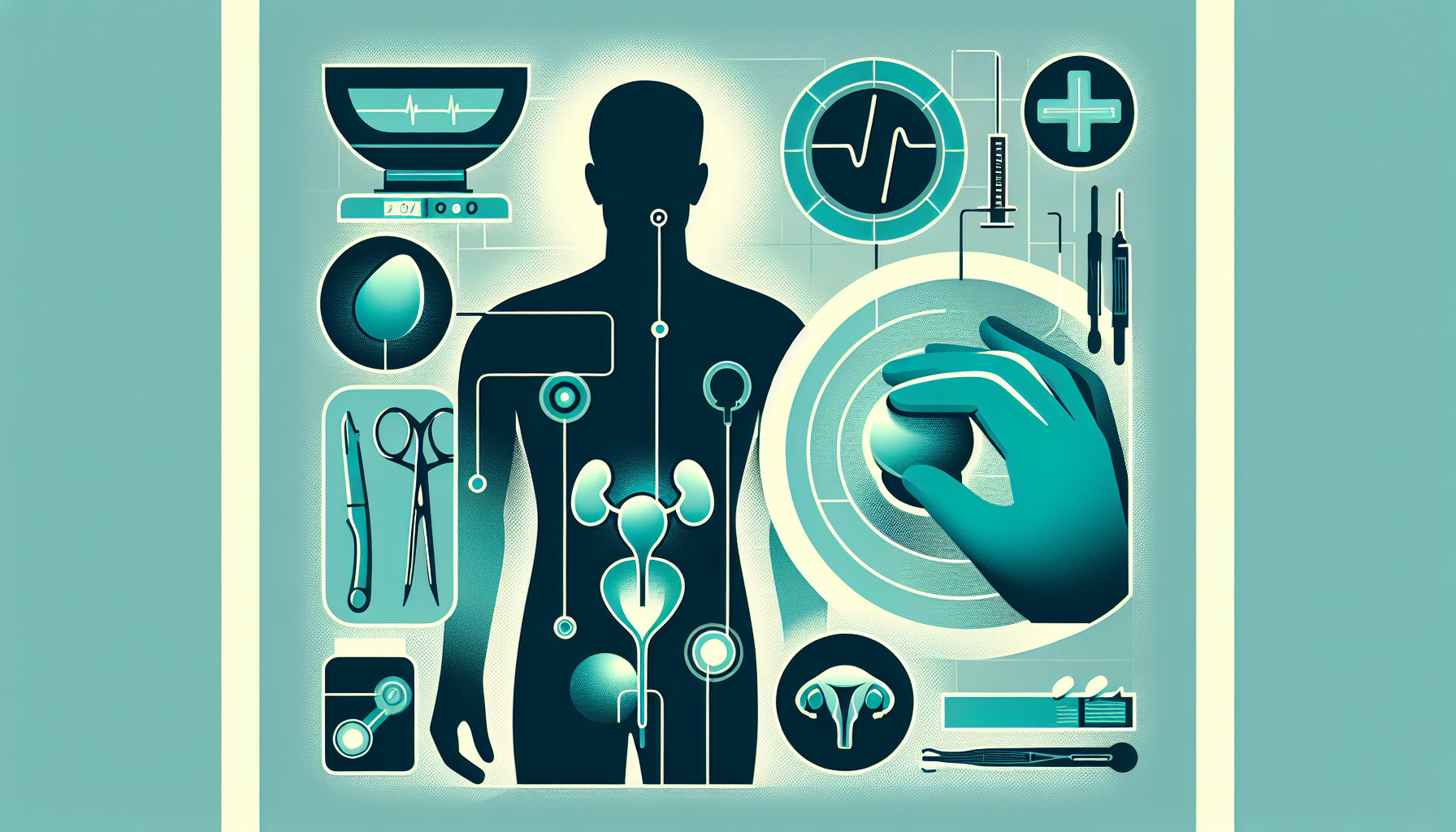Our Summary
This research paper aims to understand the impact of a physician’s experience on the results of prostate biopsies, specifically, MRI-targeted biopsies. The researchers evaluated 576 men who underwent this procedure between November 2019 and March 2022. They were particularly interested in the benefits of systematic biopsies (detailed, thorough examinations) and instances of fusion failure (where the targeted biopsy does not detect cancer in an area identified as suspicious by an MRI).
The study found that 72% of the men tested had prostate cancer. In 11% of the cases, the cancer was only detected through systematic biopsies. Among these, fusion failure occurred in 76% of the cases. The study also found that less experienced physicians tended to have a higher rate of both systematic biopsy benefits and fusion failures.
In simpler terms, the study shows that the more experienced the doctor, the less likely they are to miss cancer cells during a targeted biopsy, reducing the need for more detailed systematic biopsies. Inexperienced doctors, on the other hand, may fail to detect cancer during targeted biopsies, making systematic biopsies crucial to ensure accurate diagnosis. The study concludes that more research is needed before making systematic biopsies a standard part of prostate cancer detection.
FAQs
- How does a physician’s experience affect the results of prostate biopsies according to the research?
- What is the significance of systematic biopsies and fusion failures in prostate cancer detection?
- What were the key findings of the study regarding the detection rate of prostate cancer in targeted and systematic biopsies?
Doctor’s Tip
One important tip that a doctor might give a patient about prostate biopsy is to make sure they are being treated by an experienced physician who is skilled in performing the procedure. Experienced doctors are less likely to miss cancer cells during the biopsy, reducing the need for additional tests or procedures. It’s important to discuss the doctor’s level of experience and success rates with prostate biopsies before undergoing the procedure. This can help ensure a more accurate diagnosis and treatment plan.
Suitable For
Typically, patients who are recommended for a prostate biopsy include those with elevated levels of prostate-specific antigen (PSA) in their blood, abnormal digital rectal examination (DRE) findings, or abnormal results from a prostate MRI. Additionally, patients with a family history of prostate cancer or other risk factors may also be recommended for a biopsy. Ultimately, the decision to undergo a prostate biopsy should be made in consultation with a healthcare provider based on individual risk factors and symptoms.
Timeline
Before Prostate Biopsy:
- Patient undergoes initial screening tests such as PSA blood test and digital rectal exam.
- If results are abnormal or suspicious, patient may be recommended for a prostate biopsy.
- Patient meets with urologist to discuss the procedure, risks, and benefits.
- Patient may undergo MRI imaging to identify suspicious areas in the prostate.
- Patient may receive antibiotics to reduce risk of infection.
During Prostate Biopsy:
- Patient is positioned on their side or back.
- Local anesthesia is administered to numb the prostate area.
- Ultrasound or MRI guidance is used to target specific areas for biopsy.
- Thin needles are inserted through the rectum or perineum to collect tissue samples.
- Patient may experience discomfort or pressure during the procedure.
After Prostate Biopsy:
- Patient may experience mild pain, bleeding, or discomfort for a few days.
- Patient may be advised to avoid strenuous activities for a short period.
- Pathology report is generated based on biopsy samples.
- Patient meets with urologist to discuss biopsy results and treatment options.
- Follow-up appointments may be scheduled for monitoring or further treatment.
What to Ask Your Doctor
Some questions a patient should ask their doctor about prostate biopsy include:
- What is the purpose of the biopsy and how will the results impact my treatment plan?
- What are the risks and potential complications associated with the biopsy procedure?
- How experienced are you in performing prostate biopsies, especially MRI-targeted biopsies?
- What is the likelihood of fusion failure during the biopsy procedure?
- Will systematic biopsies be performed in addition to targeted biopsies, and why?
- What are the potential benefits of systematic biopsies in detecting cancer that may be missed by targeted biopsies?
- How will the results of the biopsy be communicated to me, and what follow-up steps will be taken based on the results?
- Are there alternative diagnostic tests or procedures that could be considered instead of or in addition to a prostate biopsy?
- What are the limitations of prostate biopsy in accurately diagnosing prostate cancer?
- How should I prepare for the biopsy procedure, and what can I expect during and after the procedure in terms of discomfort and recovery?
Reference
Authors: Jahnen M, Amiel T, Wagner T, Kirchhoff F, Büchler JW, Düwel C, Koll F, Westenfelder K, Horn T, Herkommer K, Meissner VH, Gschwend JE, Lunger L. Journal: World J Urol. 2023 Oct;41(10):2699-2705. doi: 10.1007/s00345-023-04564-z. Epub 2023 Aug 25. PMID: 37626183
